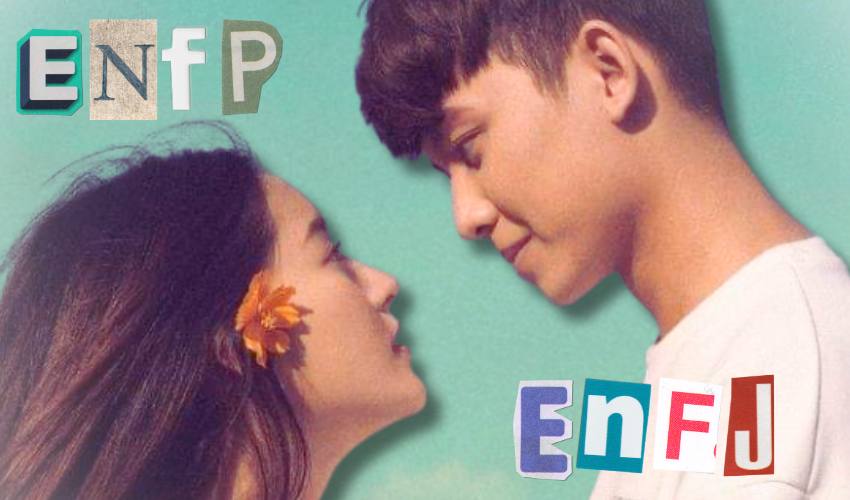image credit: Oliver Cole
The INTP is one of 16 Myers Briggs personality types and is characterized by a preference for introspection, logical thinking, and independent problem-solving. On the other hand, autism is a neurodevelopmental disorder that affects an individual’s social communication and behavior.
However, when you look further into descriptions about the INTP type, you may notice it sounds eerily similar to someone on the autistic spectrum. One research paper even suggests a “…strong correlation between those with Asperger’s syndrome or High-functioning Autism (HFA) and the INTP type of the Myers Briggs Type Indicator.” The same paper also states there is a theory that “Aspergers correlates to the INTP personality type, whereas HFA correlates to the INFJ personality type (Teixeira).
Although some people with autism may share similar traits with INTPs, such as a preference for logical order, intensely specific interests, and social deficits, it is important to note that having a certain personality type does not necessarily indicate a diagnosis of autism. Similarly, having autism does not necessarily mean that an individual will have a specific MBTI type.
While there is no direct correlation between the two, there are some overlapping areas in the traits and behaviors exhibited by individuals with INTP personality type and autism. In this article, we’ll explore these similarities and highlight the importance of recognizing individual differences within both groups.
What is the INTP personality type?
INTP stands for introvert (I), thinking (T), iNtuitive (N), and perceiving (P). This type is noted for its highly rational, analytical and inquisitive nature. These individuals are introverts who are curious to understand how things work and why. They are often smart but socially-challenged. Although they value people and relationships, these things pose greater difficulty for them to understand and manage. They tend to prioritize interests which are mentally enriching, creative and free of most human interaction. The INTP personality type is characterized by a handful of key traits:
- Analytical Thinking: INTPs are analytical and logical thinkers who enjoy solving complex problems. They are often drawn to careers that require these skills, such as science, engineering, or mathematics.
- Preference for Solitude: INTPs are introverted individuals who prefer spending time alone or with a small group of close friends. They often enjoy quiet activities like reading, writing, or pursuing their hobbies.
- Independence: INTPs value their independence and prefer to work alone or in a self-directed environment. They may become frustrated in settings that are overly structured or micromanaged.
- Curiosity: INTPs have a natural curiosity and a desire to understand how things work. They may spend a lot of time researching and exploring new topics that interest them.
- Open-mindedness: INTPs are open-minded individuals who are willing to consider different perspectives and ideas. They are often willing to challenge conventional wisdom and explore new ways of thinking.
Autistic Spectrum Disorders
Autism is a spectrum of neurodevelopmental disorders that affect an individual’s social communication and behavior. People with autism see, hear and experience the world differently than neurotypicals. There is no one definitive list of types of autism. However, here are some of the terms that may be used to describe different presentations of autism:
- Autistic disorder: This was a previous term used to describe the most severe and pervasive form of autism, which included significant impairments in communication, social interaction, and restricted and repetitive behaviors.
- Asperger’s syndrome: This was a previous term used to describe a milder form of autism, characterized by difficulties with social interaction and communication, and restricted and repetitive behaviors, without significant delays in language or cognitive development.
- Pervasive developmental disorder-not otherwise specified (PDD-NOS): This was a previous term used to describe individuals who displayed some but not all of the diagnostic criteria for autism.
- Childhood disintegrative disorder (CDD): This is a rare condition in which children experience a significant loss of previously acquired skills in communication, social interaction, and other areas, after a period of normal development.
- Social communication disorder: This is a newer diagnosis that describes individuals who have difficulty with social communication and interaction, without the restricted and repetitive behaviors that are characteristic of autism.
Key characteristics of autism:
Overall, autism is characterized by social communication difficulties, repetitive behaviors or interests, sensory sensitivities, difficulty with changes, and difficulty with empathy. It is a complex disorder that can manifest in a variety of ways and can vary in severity from person to person.
- Social Communication Difficulties: Individuals with autism may struggle with verbal and nonverbal communication, including difficulty with eye contact, tone of voice, and understanding social cues. They may also have difficulty understanding and using language in social situations.
- Repetitive Behaviors or Interests: Individuals with autism may exhibit repetitive behaviors, such as hand-flapping or rocking, or have a strong interest in a particular topic or activity. They may become upset or agitated if their routine is disrupted.
- Sensory Sensitivities: Individuals with autism may be sensitive to sensory input, such as loud noises, bright lights, or certain textures. They may also seek out sensory input, such as spinning or touching objects.
- Difficulty with Changes: Individuals with autism may have difficulty with changes in routine or unexpected events. They may become anxious or upset if their environment or routine changes unexpectedly.
- Difficulty with Empathy: Individuals with autism may have difficulty understanding the emotions and perspectives of others. They may struggle to understand nonverbal cues, such as facial expressions or body language.
Overlapping traits of INTP and Autism
While there is no direct correlation between the INTP personality type and autism, there are some similarities in the traits and behaviors exhibited by both individuals. Some commonalities between INTPs and autism include:
- Logical Thinking: INTPs and individuals with autism both tend to have a strong preference for logical thinking and analytical problem-solving. They are often highly analytical and enjoy breaking down complex issues into smaller parts.
- Difficulty with Social Communication: Both INTPs and individuals with autism may struggle with social communication. INTPs may have a preference for solitude and may struggle with social interactions, while individuals with autism may have difficulty understanding and using verbal and nonverbal communication in social situations.
- Intense focus on interests: Both groups may have a tendency to become deeply absorbed in their interests or hobbies and may have difficulty shifting their attention to other tasks. INTPs may become highly focused on a particular topic or subject, while individuals with autism may have a strong interest in a particular activity or area of knowledge.
- Tendency Towards Detail: Both INTPs and individuals with autism tend to have a strong attention to detail. They may be highly focused on small details and patterns, often to the point of obsessiveness.
- Independent Thinking: Both INTPs and individuals with autism tend to value their independence and may prefer to work alone or in a self-directed environment.
Examples of how these traits may manifest in both groups include an INTP becoming highly focused on a particular project or area of knowledge, and an individual with autism becoming highly focused on a particular activity or topic. Both may struggle with social communication and may prefer working alone or in a self-directed environment. Both may also have a strong attention to detail and a preference for logical thinking.
Differences between the INTP personality type and Autism
While there are some similarities between the INTP personality type and autism, there are also several key differences between the two groups. Some of the differences include:
- Motivation for Social Interaction: INTPs may prefer solitude and may not feel a strong motivation to interact socially. In contrast, individuals with autism may have a desire for social interaction but may struggle with the social communication necessary to form and maintain relationships.
- Empathy: INTPs may have a strong ability to empathize with others and understand their emotions, while individuals with autism may struggle with this aspect of social communication.
- Communication: INTPs may struggle with social communication due to their preference for solitude or independent thinking, while individuals with autism may struggle with communication due to difficulties understanding and using verbal and nonverbal cues.
- Sensory Sensitivities: While both groups may exhibit sensory sensitivities, individuals with autism may have more extreme sensitivities and may struggle with sensory overload in certain environments.
- Repetitive Behaviors: INTPs may engage in repetitive behaviors as a way to focus their thoughts and energy, while individuals with autism may exhibit repetitive behaviors as a way to self-soothe or manage anxiety.
Overall, while there may be some similarities between the INTP personality type and autism, the two are distinct and separate entities. INTPs may have a preference for solitude and independent thinking, while individuals with autism may struggle with social communication, empathy, and sensory sensitivities to a greater extent. It is important to recognize and understand these differences in order to provide appropriate support and resources for individuals with either trait.
Other Personality Disorders That Overlap with INTP
While INTPs do not typically exhibit symptoms of personality disorders, there are other personality types that may share some similarities with the INTP personality type. Some of these personality disorders include:
- Schizotypal Personality Disorder: Individuals with this disorder may exhibit eccentric behavior and have difficulty forming close relationships. They may also exhibit odd beliefs or magical thinking, similar to the INTP’s tendency towards unconventional or abstract thinking.
- Avoidant Personality Disorder: Individuals with this disorder may be socially withdrawn and have difficulty forming relationships due to fear of rejection or criticism. This overlaps with the INTP’s preference for solitude and their tendency to be reserved in social situations.
- Narcissistic Personality Disorder: Individuals with this disorder may exhibit grandiosity and a lack of empathy for others. While this may seem quite different from the INTP personality type, there are some similarities in terms of the INTP’s tendency towards independence and their focus on their own ideas and interests.
It is important to note that personality disorders are different from personality types, and that having a personality disorder is not the same as having a distinct personality type. Additionally, while there may be some overlap between personality types and personality disorders, it is important to avoid making assumptions or generalizations based on an individual’s personality type or diagnosis. Each individual is unique and may exhibit a wide range of behaviors and experiences.

sources:
- Teixeira, L. (n.d.). Is Asperger’s syndrome/high-functioning autism necessarily a disability. Retrieved April 30, 2023, from (Link)
- Shroff, A. (n.d.). Asperger’s syndrome: Symptoms, tests, diagnosis, and treatment. WebMD. Retrieved April 30, 2023, from (Link)
- Asperger syndrome. undefined. (n.d.). Retrieved April 30, 2023, from (Link).
thumbnail image credit: Oliver Cole
related posts:
- INTP vs INTJ Comparison: 3 Key Differences Between the Logician and the Architect
- How To Spot An INTP (Plus 15 Brutal Truths About INTPs)
- INTP vs INFP Similarities and Differences
- INTP Shadow
- 7 Pitfalls That INTPs Should Avoid
- The INTP Personality: What it means to be the Logician MBTI Type
- INTP Strengths; 7 Advantages of Being INTP
- 6 Best Paying Careers For the INTP
- The Dark Side of INTP
- ISFJ and ISTJ in love: 5 Essential Dynamics of their Relationship - February 24, 2024
- ENTP and ENTJ in love: 6 Critical Dynamics of Their Relationship. - February 18, 2024
- ESTJ and ESFJ in love: 4 Key Aspects of their Relationship. - February 12, 2024





